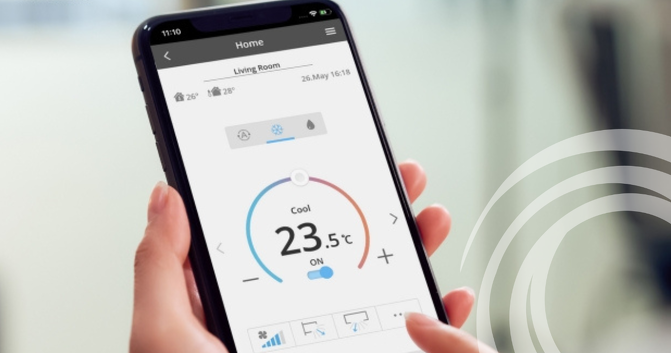Blog

The Future of Heat Pumps in New Zealand: Trends and Innovations
As New Zealand continues its commitment to sustainable living and reducing carbon emissions, heat pump technology is evolving rapidly to meet the country's energy needs. The future of heat pumps in New Zealand is promising, with numerous trends and innovations set to enhance their efficiency, sustainability, and overall performance. In this blog, we’ll explore the latest trends and technological advancements shaping the future of heat pumps in New Zealand.
1. Smart Technology Integration
Integrating smart features is one of the most significant trends in heat pump technology. Smart heat pumps can be controlled remotely via smartphones or tablets, allowing homeowners to adjust settings, monitor performance, and receive maintenance alerts from anywhere. These systems can also learn user preferences and optimise energy usage, increasing efficiency and convenience. As smart home technology becomes more prevalent, smart heat pumps will become a standard feature in modern New Zealand homes.
2. Improved Energy Efficiency
Ongoing advancements in heat pump technology are continually improving their energy efficiency. Manufacturers are developing new compressor designs, advanced refrigerants, and innovative heat exchange methods to maximize performance. These improvements not only reduce energy consumption but also lower homeowners' operational costs. As energy efficiency standards become more stringent, the next generation of heat pumps will deliver even greater savings and environmental benefits.
3. Hybrid Systems
Hybrid heat pump systems, which combine traditional heating methods with heat pump technology, are gaining popularity. These systems can switch between heat pump operation and conventional heating based on the most efficient option at any given time. For example, during extremely cold weather, the system might use a backup heater to supplement the heat pump. This flexibility ensures optimal performance and efficiency year-round, making hybrid systems attractive for New Zealand’s varied climate.
4. Enhanced Cold Climate Performance
New Zealand's diverse climate means that heat pumps must perform well in both mild and cold conditions. Recent innovations have focused on improving the performance of heat pumps in colder temperatures. Advanced defrosting technologies, enhanced insulation, and improved refrigerants ensure that modern heat pumps remain efficient even in the coldest parts of the country. These advancements make heat pumps a reliable choice for all regions of New Zealand.


5. Integration with Renewable Energy Systems
As renewable energy sources increasingly power New Zealand's power grid, there is a growing trend of integrating heat pumps with renewable energy systems. Homeowners, for example, can pair heat pumps with solar panels to create self-sufficient energy systems. This integration reduces reliance on the grid and contributes to a lower carbon footprint. With the government’s support for renewable energy initiatives, this trend is set to expand further.
6. Environmental-Friendly Refrigerants
Another crucial trend in heat pump technology is the shift towards environmentally friendly refrigerants. Traditional refrigerants have been known to contribute to global warming and ozone depletion. In response, manufacturers are adopting new refrigerants with low global warming potential (GWP). These eco-friendly refrigerants reduce the environmental impact of heat pumps, aligning with New Zealand’s sustainability goals.
7. Noise Reduction Technology
Noise has been a common concern with heat pump systems, but recent advancements are addressing this issue. Manufacturers are developing quieter compressors, fans, and insulation techniques to minimise operational noise. These innovations ensure that heat pumps provide a comfortable and peaceful living environment, making them more appealing to homeowners.
8. Government Incentives and Support
The New Zealand government is actively supporting the adoption of energy-efficient technologies, including heat pumps. Incentives, rebates, and subsidies are available to encourage homeowners to invest in heat pump systems. These programs make heat pumps more affordable and accelerate the transition to sustainable heating and cooling solutions across the country.
Conclusion
From smart technology integration and improved energy efficiency to hybrid systems and eco-friendly refrigerants, heat pumps are becoming more advanced and environmentally friendly. As these trends continue to evolve, heat pumps will play a crucial role in New Zealand’s journey towards a sustainable and energy-efficient future. If you’re considering upgrading your home’s heating and cooling system, now is the perfect time to explore the latest heat pump technologies and reap the benefits of these exciting advancements.


